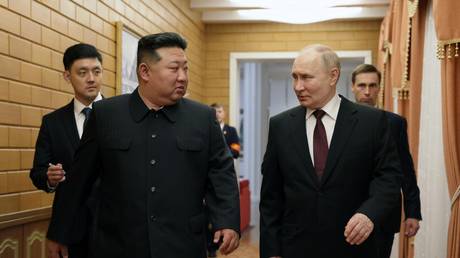Schatz: Rubio’s State Department overhaul will erode US global leadership
Sen. Brian Schatz (D-Hawaii), ranking member of the Senate Appropriations subcommittee that oversees state and foreign operations, says that Secretary of State Marco Rubio’s proposed overhaul of the State Department will undermine U.S. global leadership and risk critical national security objectives. “Following the illegal and damaging dismantling of USAID, Secretary Marco Rubio’s proposed changes to...

Sen. Brian Schatz (D-Hawaii), ranking member of the Senate Appropriations subcommittee that oversees state and foreign operations, says that Secretary of State Marco Rubio’s proposed overhaul of the State Department will undermine U.S. global leadership and risk critical national security objectives.
“Following the illegal and damaging dismantling of USAID, Secretary Marco Rubio’s proposed changes to the State Department would have drastic and wide-ranging implications for key U.S. national interests,” Schatz, who is also a member of the Senate Foreign Relations Committee, said in a statement.
He said the new reorganization plan “raises grave concerns that the United States will no longer have the capacity or capability to exert U.S. global leadership, achieve critical national security objectives, stand up to our adversaries, save lives, and promote democratic values.”
“These have always been bipartisan endeavors for good reason. They make America safer, stronger and more prosperous. Now they are at risk,” he said.
Schatz issued his statement Tuesday afternoon after Rubio unveiled a plan to overhaul a State Department that he said was “beholden to radical ideology.”
Rubio’s proposal would eliminate the office of the undersecretary for civilian security, democracy and human rights.
It would also cut and reorganize bureaus for democracy, human rights and refugees and combine them with offices for foreign assistance and humanitarian aid.
It would eliminate 132 domestic offices, reduce U.S.-based staffing by 15 percent and cut an estimated 700 positions in Washington.
The plan would create a new Bureau of Emerging Threats to focus on cybersecurity and computer-based threats, such as foreign development of artificial intelligence.









































































